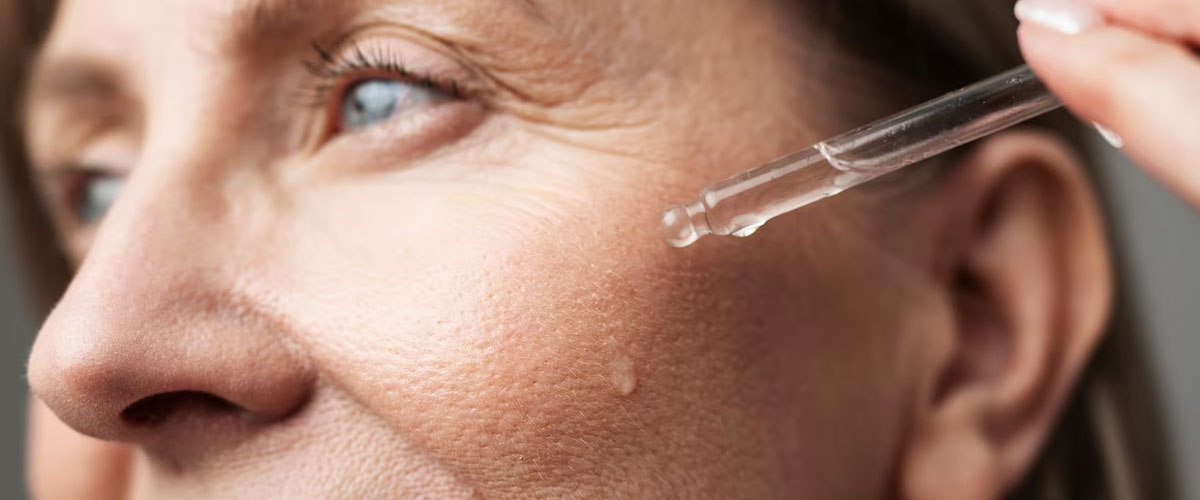- You have no items in your shopping cart
- Continue Shopping

Aging is a natural part of life, but that doesn’t stop many of us from searching for ways to slow down its effects. From anti-wrinkle creams to dietary supplements, the quest for youthful vitality is endless. In recent years, one unlikely contender has entered the anti-aging scene—CBD, or cannabidiol. With its growing popularity in the wellness world, CBD is being hailed for its potential to promote everything from mental well-being to glowing skin. But what does the science actually say about CBD’s role in anti-aging? Is it just another trend, or could it hold the key to aging gracefully?
Let’s explore the evidence and uncover how CBD might help keep both your mind and body youthful.
What is CBD?
First things first: what exactly is CBD? Cannabidiol, or CBD, is one of the many compounds found in the cannabis plant. Unlike THC, which is famous (or infamous) for its psychoactive effects, CBD won’t get you high. Instead, it interacts with your body’s endocannabinoid system, a network of receptors responsible for regulating everything from mood to immune response.
CBD has exploded in popularity in recent years, thanks to its potential health benefits and its legal status in many parts of the world. From oils and tinctures to gummies and skincare products, CBD is now a common ingredient in wellness routines. But is it really effective when it comes to combating the effects of aging?
The Aging Process: What’s Happening to Your Body?
To understand how CBD might help, it’s important to know what happens to your body as it ages. While aging affects everyone differently, there are a few common culprits that contribute to the physical signs of getting older. These include:
- Cellular damage: Over time, your cells suffer damage from environmental factors such as UV rays, pollution, and lifestyle choices. This cellular damage accelerates the aging process, contributing to wrinkles, sagging skin, and other signs of aging.
- Oxidative stress: One of the biggest drivers of aging is oxidative stress. This happens when free radicals—unstable molecules—attack healthy cells, leading to cell degradation and aging.
- Inflammation: Chronic inflammation has been linked to a variety of age-related conditions, including arthritis, cardiovascular disease, and even cognitive decline. It’s also a major factor in skin aging.
- Decreased collagen production: As you age, your body produces less collagen, a key protein that keeps your skin plump, firm, and youthful. Less collagen means more wrinkles and sagging skin.
- Mitochondrial decline: The energy centers of your cells, known as mitochondria, also become less efficient with age, contributing to overall fatigue and aging.
How CBD May Help with Anti-Aging
Now that we know what causes aging, how does CBD fit into the picture? Research suggests that CBD could play a role in slowing down some of these processes, making it a promising ingredient for anti-aging.
1. Antioxidant Properties
One of the most exciting aspects of CBD is its potential as a powerful antioxidant. Antioxidants help combat free radicals, those pesky molecules that cause oxidative stress and damage your cells. Studies have shown that CBD may have even more potent antioxidant properties than vitamins C and E, which are both well-known for their anti-aging effects.
By reducing oxidative stress, CBD could help protect your cells from damage, thereby slowing the aging process. This could mean fewer wrinkles, less sagging, and overall healthier skin.
2. Anti-Inflammatory Effects
Inflammation is at the root of many age-related issues, from joint pain to skin problems. CBD has been widely studied for its anti-inflammatory properties, making it a potential ally in the fight against aging.
By reducing inflammation, CBD could help alleviate the redness, puffiness, and irritation that often come with aging skin. More importantly, it may help keep chronic inflammation at bay, which is key to preventing age-related diseases like arthritis and heart disease.
3. Endocannabinoid System and Aging
Your body’s endocannabinoid system (ECS): plays a crucial role in maintaining balance, or homeostasis, in the body. This system helps regulate a wide range of functions, including mood, sleep, and immune response. As we age, the ECS may become less efficient, leading to issues like chronic pain, inflammation, and cognitive decline.
CBD interacts with the ECS, potentially enhancing its ability to maintain balance. Some researchers believe that by supporting the ECS, CBD could help mitigate some of the symptoms of aging, such as inflammation and cognitive impairment.
The Science Behind CBD and Anti-Aging
The potential for CBD to help with aging is intriguing, but what does the research say? While studies on CBD and aging are still in the early stages, the results so far are promising.
1. Skin Health
CBD’s potential benefits for the skin are one of the most talked-about areas of anti-aging research. Studies suggest that CBD may help improve skin health by reducing inflammation and regulating oil production. Additionally, its antioxidant properties could protect skin cells from oxidative stress, potentially reducing the appearance of fine lines and wrinkles.
In one study, researchers found that CBD’s anti-inflammatory effects helped improve skin conditions like acne and eczema, both of which can worsen with age. Another study highlighted CBD’s ability to regulate sebum production, which could help prevent skin from becoming overly oily or dry—both common issues as we age.
2. Neuroprotective Benefits
Aging doesn’t just affect your skin—it also takes a toll on your brain. Neurodegenerative diseases like Alzheimer’s and Parkinson’s are often linked to aging, and many researchers are exploring how CBD may help protect brain health.
Early studies suggest that CBD could have neuroprotective properties, meaning it might help protect the brain from the damage that leads to cognitive decline. By reducing inflammation in the brain and protecting neurons from oxidative stress, CBD could potentially slow down age-related memory loss and cognitive impairment.
3. Potential Impact on Age-Related Diseases
In addition to its potential anti-aging effects on the skin and brain, CBD has shown promise in addressing some of the age-related diseases that can affect quality of life. For example, studies have suggested that CBD may help reduce symptoms of arthritis by reducing joint inflammation and pain. There’s also some evidence that CBD could help improve heart health by reducing blood pressure and protecting the cardiovascular system from inflammation and oxidative stress.
Choosing CBD Skincare Products: What to Look For
As CBD’s popularity has soared, so has the number of products on the market claiming to offer anti-aging benefits. But not all CBD products are created equal. If you’re interested in trying CBD for anti-aging, here are a few things to keep in mind when choosing a product:
- Topical vs. Oral Use: CBD can be used both topically and orally for anti-aging. Topical products, like CBD-infused creams and salves, are ideal for targeting skin issues directly, while oral CBD oils and capsules may offer more systemic benefits, including reducing inflammation throughout the body.
- Full-Spectrum vs. Isolate: Full-spectrum CBD contains other beneficial compounds from the cannabis plant, such as terpenes and other cannabinoids, which may enhance its effectiveness. CBD isolate, on the other hand, is pure CBD. Some experts believe full-spectrum products offer a greater range of benefits, but it ultimately comes down to personal preference.
- Third-Party Testing: Look for products that have been tested by a third party for purity and potency. This ensures that the product contains the amount of CBD it claims and is free from harmful contaminants.
The Future of CBD and Anti-Aging
While CBD shows great potential as an anti-aging ingredient, it’s important to note that research is still in its early stages. Long-term studies are needed to fully understand how CBD affects aging and whether it can truly slow down the process. Additionally, the CBD industry is still largely unregulated, making it essential for consumers to do their own research when choosing products.
That said, the evidence so far is promising. With its antioxidant, anti-inflammatory, and neuroprotective properties, CBD may offer a natural solution for those looking to age gracefully.
Conclusion
The role of CBD in anti-aging is a fascinating area of research, and the science so far suggests that this compound could offer some real benefits. Whether it’s protecting your skin from oxidative stress, reducing inflammation, or supporting brain health, CBD shows promise as a natural remedy for many of the issues associated with aging.
As with any wellness product, it’s important to approach CBD with realistic expectations and to consult with a healthcare professional before incorporating it into your routine. While we may not have all the answers yet, CBD is certainly a contender in the ever-evolving field of anti-aging science.
Shop online today at CBD2HEAL for Canada’s best organic CBD oil.






